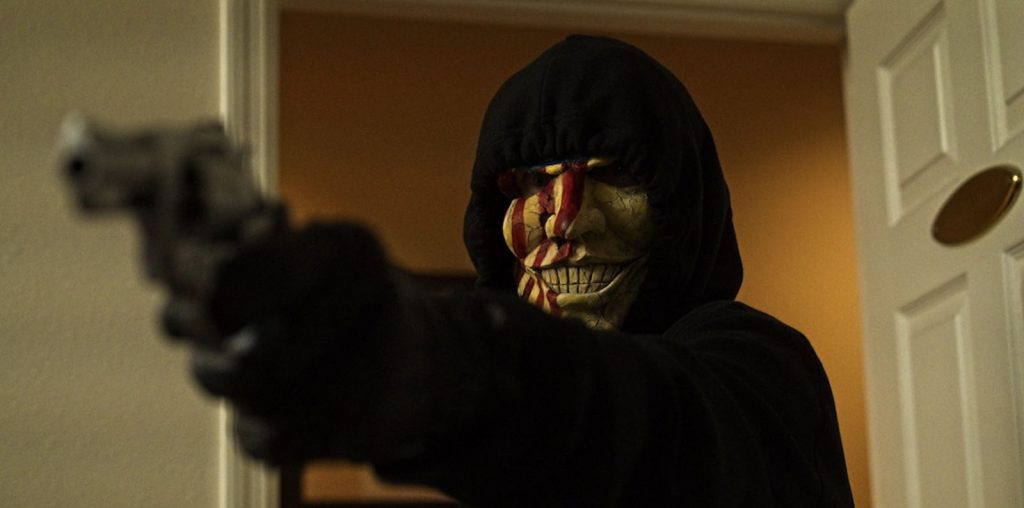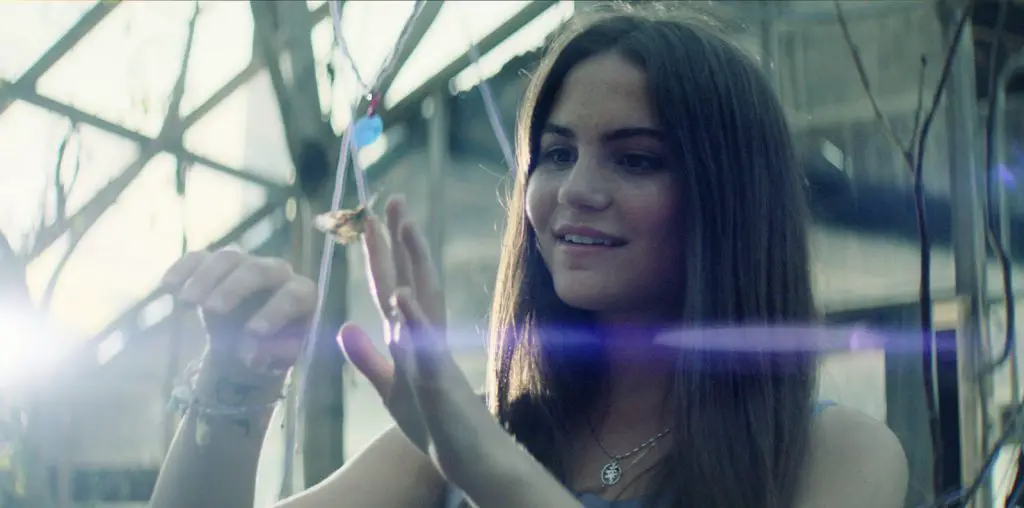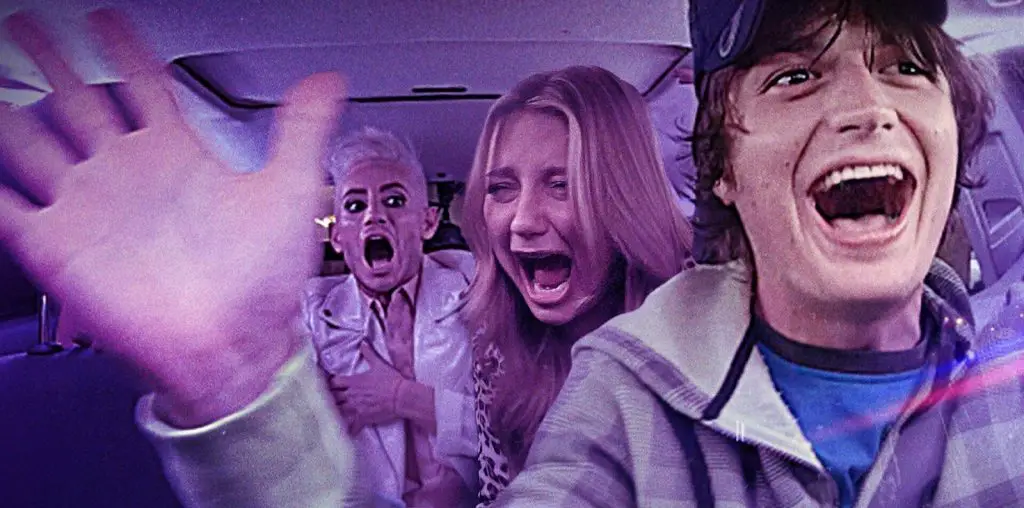
Goodbye Honey is the feature-length directorial debut of Max Strand, who co-wrote the film with Todd Rawiszer. The thriller breathlessly opens with a young lady running into the basement of a house, clearly scared out of her wits. She frantically searches for a way to escape, using various tools and objects present to help. The strong direction, stunning cinematography, and unsettling score raise the hair of all watching during this wordless cold open. It immediately grips the audience, setting a riveting mood the rest of the film ultimately maintains, no matter how uneven at times.
Those first three minutes, or so, are the best the movie gets, but it also presents a massive hurdle the screenplay never entirely overcomes. The story proper begins with truck driver Dawn (Pamela Jayne Morgan) pulling over for the night to get some sleep. She calls her client to inform him of the stop and reassures him that she is still ahead of schedule. Dawn only has her head down for a minute when someone frantically knocks on the truck door. This is Phoebe (Juliette Gobin), who asks Dawn for water and to call the police.
Just as Dawn is about to do so, her phone rings; it is the client again, double-checking a few things. Phoebe gets evermore anxious, waiting for the call to end so that the cops can be contacted, so she impulsively grabs for the cell. This causes Dawn to drop it to the ground, breaking it. The obviously shaken young girl explains to the trucker that she was kidnapped four months ago, and the rig was the first sign of life she’s seen since escaping. However, Dawn does not buy Phoebe’s tale. So now, as the night wears on, Phoebe must convince Dawn she’s telling the truth and to get her help.
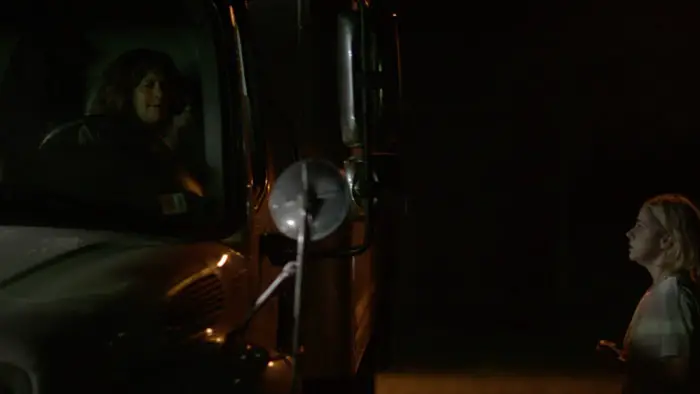
“…Phoebe must convince Dawn she’s telling the truth and to get her help.”
Did you spot the looming problem of Goodbye Honey? See, for as absolutely brilliant as the opening is (and make no mistake, it is worth watching the entire movie all by itself), it deflates the early characterization of Dawn. Since viewers are already aware that something is amiss and are on the edge of their seats, the trucker’s disbelieving and petulant attitude toward the obviously troubled stranger does not come across as streetwise or survival instinct. Instead, Dawn appears to be an uncompassionate, inhuman bitch. Her steadfast refusal to help someone in distress makes it impossible to relate or care about her, so when her backstory is finally revealed, roughly halfway through, it is too little, too late.
Frustratingly, this is not the only issue in the film. At a certain point, two drunk drug users are wandering through the park, and Dawn asks to use their cellphone. However, these two folks are punks and humiliate/exploit her in a sequence that is as terribly misguided as the prologue is electrifying. The ensuing fallout between Dawn and Phoebe over this episode feels forced and awkward.
Finally, on the negative front, there’s the motivation of the bad guy and the threading together of plot strands. The kidnapper’s rationale strains credibility and logic, and the connective tissue between Dawn, Phoebe, and the young lady from the opening (Allison played by Peyton Michelle Edwards) is slap-your-forehead idiotic. It boggles the brain to figure out how either writer thought this would elicit chills rather than ridicule from audiences.
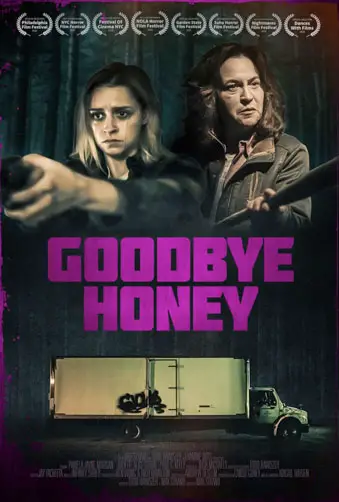
"…the opening is...worth watching the entire movie all by itself..."
